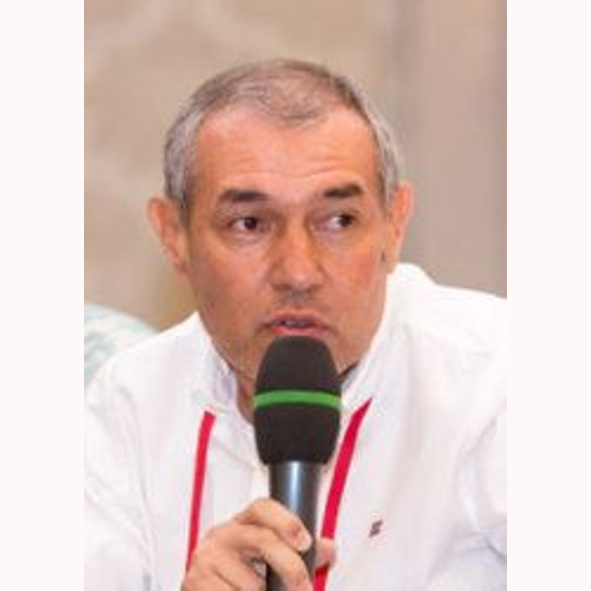
Takabaev Takhir Maratovich
Associate professor
The Department of «Software Engineering»
Candidate of physical and mathematical sciences
email: tt@ahost.kz
Candidate of Mathematics.
In 1991-2007 was head o Computer Center of Kazakh Academy of Sciences, Also in this time was head of IT department in Katransgaz plc, where take part in different projects like as ER, GIS, and other
Published more 20 scintific works in different years
From 2007 year focused on his own projects. He build his own Data Center , which is one of the first commercial independent Data Center in Kazakhstan
Created new cours "Infrastructure of cloud technology" which is based on his own exparience
1980 - 1985 Kazakh State Univercity . Mechanics.
1985 - 1988 Institute of Mathematics of the Academy of Sciences of the Kazakh SSR. postgraduate student.
1989 - Institute of Mathematics of the Academy of Sciences of the Kazakh SSR. He defended his PhD thesis in the specialty Mechanics of liquid gas and plasma..
in 1989 received scientific degree on specialty 01.02.04 Mechanics of fluids . Job titled Research of dynamics of debris flow after this he took part on differenet research works of Institute of Mathematics and KazITU
2022-2023 Business process control and optimization system
2022-2025-LCAD Fiber Optic Communication Line Design and Testing
System 2022-2023- Cardio monitoring system
Publications
- Cloud development of MON resources and their commercial operation. Takabaev T.M. Kalimoldaev M.N., Amirkhanova G., Grechko, Report June 28, 2012, at the International Scientific and Practical Conference "Informatization of society" June 28-30, 2012
- Temirbekov, N.M.,Takabayev, T.M.,Baigereyev, D.R.,Wójcik, W., Gromaszek., Proceedings of the Gumilev Eurasian National University Conference. Section 3. "Informatization of transport infrastructure and telecommunications. UDC 004.735 (http://www.e-zerde.kz/2012/3.pdf )
- K.,Temirbekov, A.N.,Amirzhanova, B.B. On the use of the cloud platform in the work of the scientific and educational cluster. International Journal of Electronics and Telecommunications-Volume 66, Issue 4, p. 629-634.-2020. (DOI: 10.24425-ijet.2020.135676/768, Scopus, percentile:35, Q3)